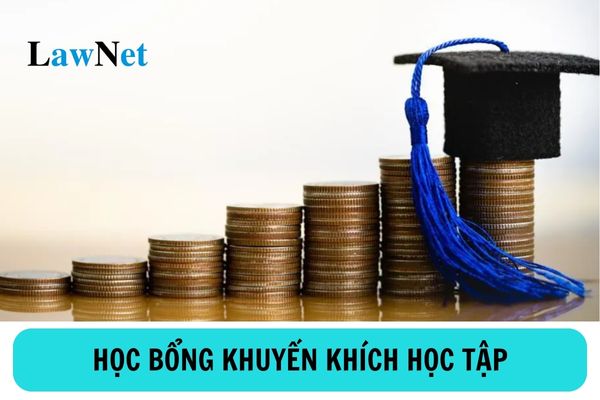Who is eligible for the academic incentive scholarship in Vietnam?
Who is eligible for the academic incentive scholarship in Vietnam?
According to Clause 1, Article 8 of Decree 84/2020/ND-CP, the subjects eligible for the academic incentive scholarship include:
- High school students in specialized schools within universities, specialized school students with good conduct and excellent academic performance in the semester of scholarship evaluation, with a specialized subject score of 8.5 or higher or winning at least a consolation prize in national, regional, or international excellent student contests that year;
- Students of specialized art, sports, and physical education schools with good or better conduct, average or better academic performance in the semester of scholarship evaluation, and winning medals in national, regional, or international competitions that academic year;
- Students studying at vocational education institutions and higher education institutions with good or better academic and conduct performance, without disciplinary actions from reprimand level or higher in the semester of scholarship evaluation.

Who is eligible for the academic incentive scholarship in Vietnam? (Image from the Internet)
What is the level of the academic incentive scholarship in Vietnam?
Based on Clause 2, Article 8 of Decree 84/2020/ND-CP, the level of the academic incentive scholarship is prescribed as follows:
- The level of the scholarship for subjects stipulated in Points a and b, Clause 1, Article 8 of Decree 84/2020/ND-CP:
+ For specialized schools and specialized art, sports, and physical education schools: The scholarship level for each student per month is at least three times the current tuition fee of specialized high schools in the local area;
+ For specialized high schools within higher education institutions: The scholarship level for each student is determined by the university rector but must not be lower than the current maximum tuition fee that the student has to pay at the school;
+ For tuition-free schools: The scholarship level is at least three times the maximum tuition fee of high schools in the local area.
- The level of the scholarship for subjects stipulated in Point c, Clause 1, Article 8 of Decree 84/2020/ND-CP:
+ Good scholarship: The scholarship level is equal to or higher than the current maximum tuition fee of the field, major, or profession that the student has to pay at the school as determined by the rector or director (hereinafter collectively referred to as the rector) for students with an average academic performance and conduct score of good or better.
+ For private schools, the minimum scholarship level is determined by the rector.
+ For training fields without tuition fees, the scholarship level is applied according to the unit price ordered, assigned tasks, or bid by the state for the school's training fields.
+ Excellent scholarship: The scholarship level is higher than the good type as determined by the rector for students with an average academic performance of excellent or better and a conduct score of good or better.
+ Outstanding scholarship: The scholarship level is higher than the excellent type as determined by the rector for students with an average academic performance and a conduct score of outstanding.
+ The average academic performance and conduct score stipulated in Points a, b, and c, Clause 3, Article 8 of Decree 84/2020/ND-CP are determined according to the current regulations of the Ministry of Education and Training, the Ministry of Labor – Invalids and Social Affairs; wherein the average academic performance for scholarship evaluation according to Decree 84/2020/ND-CP is calculated from the first exam results, and end-term tests.
Do public university students who receive academic incentive scholarships have to pay personal income tax in Vietnam?
According to Clause 11, Article 4 of the Personal Income Tax Law 2007, income exempt from tax includes:
Tax-exempt income
...
- Income from scholarships, including:
a) Scholarships received from the state budget;
b) Scholarships received from domestic and foreign organizations according to the scholarship support program of those organizations.
...
And at Point m, Clause 1, Article 3 of Circular 111/2013/TT-BTC stipulates:
Tax-exempt income
- Based on the provisions of Article 4 of the Personal Income Tax Law, Article 4 of Decree No. 65/2013/ND-CP, tax-exempt income includes:
...
m) Income from scholarships, including:
m.1) Scholarships received from the state budget include: scholarships from the Ministry of Education and Training, the Department of Education and Training, public schools, or other scholarships sourced from the state budget.
m.2) Scholarships received from domestic and foreign organizations (including living expenses) according to the scholarship support program of those organizations.
The organization providing scholarships to individuals mentioned in this point must keep scholarship award decisions and scholarship payment documents. In case individuals receive scholarships directly from foreign organizations, the income recipient must keep documents and evidence proving the income received is a scholarship granted by foreign organizations.
...
And at Clause 4, Article 8 of Decree 84/2020/ND-CP stipulates the source of academic incentive scholarships as follows:
academic incentive scholarships
...
4. Source of scholarships:
a) For specialized schools, specialized art, sports, and physical education schools: academic incentive scholarships are allocated in the local budget expenditure estimate to provide for at least 30% of the specialized students of the school. For specialized high schools within higher education institutions, academic incentive scholarships are allocated from the legitimate revenues of higher education institutions and the legitimate revenues of specialized high schools;
b) For vocational education institutions and higher education institutions: The academic incentive scholarship is allocated at least 8% of tuition revenues for public schools and at least 2% of tuition revenues for private schools.
...
According to the regulations, income from scholarships received from the state budget including scholarships from public schools is tax-exempt income.
Thus, income from the receipt of academic incentive scholarships by students of public universities is tax-exempt.
Therefore, students receiving academic incentive scholarships from public universities will not have to pay personal income tax.

